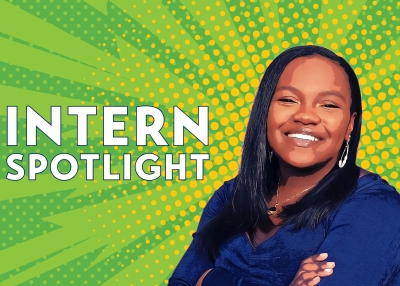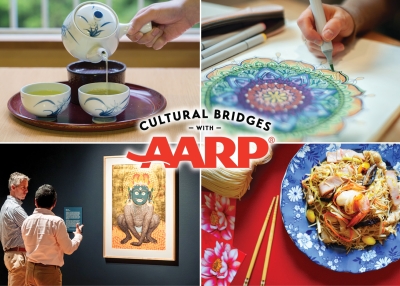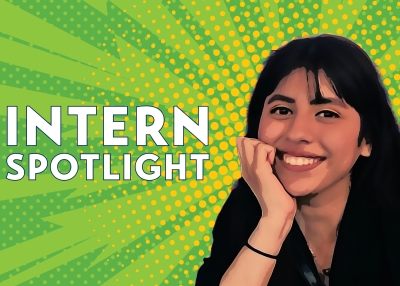Journalists, Commentator Discuss How To Counter COVID-19 Misinformation
Asia Society at Home
Learn More
HOUSTON, April 10, 2020 — In its second weekly webcast addressing COVID-19 topics, Asia Society Texas Center welcomed BuzzFeed News senior reporter Ryan Broderick and Outreach Strategists Founder and President Mustafa Tameez in conversation with the Houston Chronicle’s Chris Tomlinson to discuss the spread of misinformation around coronavirus. Overcoming a few technical challenges, the discussion addressed how misinformation spreads, the roles played by tech companies and media, and audience concerns on how to reach friends and family members.
Where do people get their information?
Tomlinson set the stage by referencing the Trust Barometer by global communications firm Edelman, which gauged where people get their information on COVID-19 and whom they trust. It revealed that 63 percent of people in 10 different countries trusted their employer for health information, which they rated higher than their government (58 percent) or traditional media (51 percent).
Tameez explained that media literacy is not what exists in the media or on the internet, but rather is what people perceive. There is a constant bombardment of information, he said, and those who did not grow up with digital platforms — “non-natives,” in his words — are more susceptible to “fake news” or misinformation because they are less experienced in checking the sources of information that comes to them.
What is misinformation?
Unfortunately, the portion of the discussion where the speakers defined misinformation was lost due to technical difficulties. Tomlinson summarized that misinformation is essentially “mistakes that get circulated,” while disinformation is “intentional lying.”
For instance, Tomlinson pointed to the initial guidance from the CDC against non-symptomatic people wearing masks, which was revised just this week in favor of recommending masks. To some, this pivot can be confusing and contradictory, but Tomlinson cited it as an example of information that naturally changed due to an evolving situation or understanding.
Why does misinformation spread?
Broderick noted that with regard to COVID-19 misinformation in particular, the pandemic is a crisis unlike any other that most people have experienced — because people can’t see coronavirus the way they can see a natural disaster, they often search for an explanation and a sense of control. This then provides opportunities for misinformation to spread, whether unintentionally or through actors with bad agendas propagating disinformation.
Tameez gave an example of supposed coronavirus home remedies being passed around WhatsApp. The ideas were welcomed by people who already believe home remedies were better than modern medicine. Tameez said these kinds of ideas are often the root of conspiracy theories, which take something people already believed and add information they are then more willing to latch on to.
Broderick also highlighted how differences of class can be obstacles in obtaining good information, noting that those of a lower socioeconomic status are more likely to get their news from free, accessible sources — often social media — as opposed to subscribing to a variety of newspapers, TV channels, or online news sites. This disparity often means they might not have the time or opportunity to vet various news sources or hold the authors or reporters accountable.
So how do we fight misinformation?
Social media platforms have fostered the spread of much misinformation around COVID-19. Broderick noted a similar trend to the proliferation of misinformation during the 1918 influenza pandemic, which took place across the ascendant technology of the time (printed newsletters) and which also faced significant backlash, leading to reporters debunking bad information. In 2020, major tech companies have responded in varying ways. Broderick indicated that YouTube has been proactive in clearing out videos sharing misinformation, and Twitter has implemented a new COVID-19 policy resulting in the removal of tweets and suspension of certain accounts. He said that though Facebook has tightened up restrictions, he believes Facebook Groups continue to be overlooked as a source of bad information.
Tameez emphasized the need to, in his words, “meet people where they are.” In response to audience questions on how to convince older generations to take the pandemic seriously, or how to engage friends or family trapped in echo chambers, he said it is essential to engage people where they are having conversations — for instance, on Facebook — as well as to get to them early, if possible. In his view, once a belief hardens, it is nearly impossible to change minds.
To that end, Tameez also called for increasing media literacy, particularly beginning at a young age. He said he believes that people’s inability to distinguish legitimate information from illegitimate information will put them at risk, as well as those around them.
What are reliable sources on COVID-19 information and updates?
The speakers recommended the CDC and Johns Hopkins University’s live map for up-to-date information on the spread of COVID-19, as well as media such as The New York Times, Washington Post, and BuzzFeed News. Tomlinson also plugged the Houston Chronicle for local coverage, while Broderick recommended The Atlantic’s analysis of the broader implications of the pandemic and the Financial Times’ work in data journalism and visualization.
Tomlinson added that a good indicator of a reputable source is whether or not it attributes its information. The speakers also agreed that the most important way to counter misinformation and promote good information is to simply open up a conversation about the story, regardless of source, as that is more likely to reach friends and family.
Will the COVID-19 experience change how people get information or their trust in it?
Tameez said he believes the COVID-19 pandemic will result in a societal shift, impacting every element of how our economy works, including business, real estate, and of course media. Multiple news sources have shifted to offer dedicated, targeted reporting and coverage of COVID-19 and seen resultant growth in readers and subscribers, with attributed articles shared widely on social media. Tameez also said the quality of content, whether written or video, will be paramount in determining its reach. Broderick agreed that this wider shift, which is likely, presents an opportunity to change for the better.
About Asia Society at Home
Though Asia Society is temporarily closed, we are dedicated to continuing our mission of building cross-cultural understanding and uplifting human connectivity. Using digital tools, we bring you content for all ages and conversations that matter, in order to spark curiosity about Asia and to foster empathy.
About Asia Society Texas Center
With 13 locations throughout the world, Asia Society is the leading educational organization promoting mutual understanding and strengthening partnerships among the peoples, leaders, and institutions of Asia and West. Asia Society Texas Center executes the global mission with a local focus, enriching and engaging the vast diversity of Houston through innovative, relevant programs in arts and culture, business and policy, education, and community outreach.




